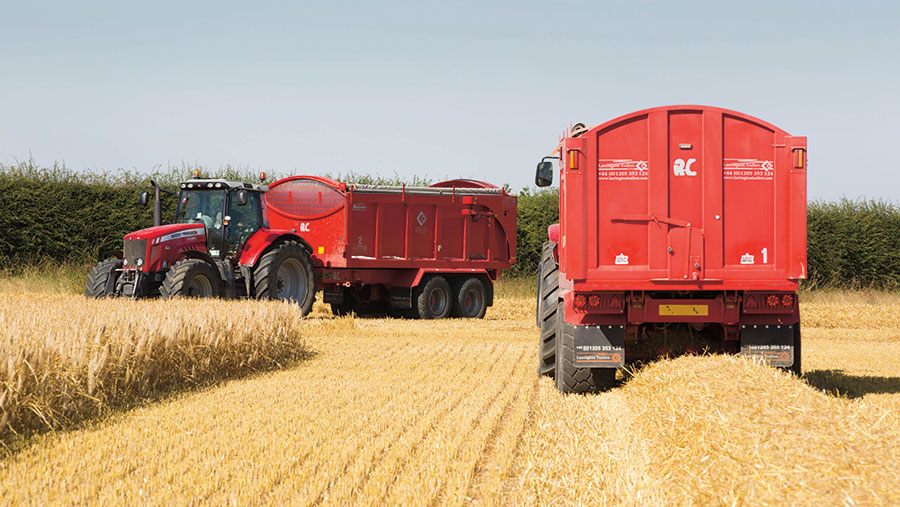Business Clinic: How to co-operate to reduce farm costs
 © Tim Scrivener
© Tim Scrivener Farmers Weekly’s Business Clinic experts offer free advice on legal, finance, tax, insurance, farm management and land issues.
Here Andrew Wraith of Savills sets out the main options for farmers to co-operate.
Q I have been approached by a neighbour to join forces and farm land together.
We both have machines coming up for replacement and current costs plus Brexit uncertainty makes working together attractive.
What are our options?
See also: Business clinic: Can I lift agricultural tie on my house?
A The options include entering into a full contract farming agreement (CFA) with your neighbour, with one of you undertaking or managing the physical working of the land while the other retains the management of the business.
 Andrew Wraith
Andrew Wraith Head of food and farming
Savills
This, if required, allows the release of capital from the sale of existing equipment, which can be invested elsewhere.
The agreement will need to reflect the relative input of each partner but such arrangements can also free up time for other business interests.
See also: Barn conversion – residential or commercial?
Another option is an agreement to either share a single machine, either jointly owned or by one of you contracting the service to the other.
The third main option is to set up a separate entity to own equipment that then contracts back to your respective businesses, while also leaving the potential to carry out work for others.
While, of course, the key driver dictating which option to take comes down to optimising overall savings and having access to reliable up-to-date equipment to maximise production, working out how to get there involves some serious thought and essentially comes down to working relationships.
Suitability
The obvious but vital point is can you work with your neighbour?
The personal relationship may be good but are you of like mind in your approach to operations?
Having looked over the hedge, are you happy with what you see?
How are the farms placed in terms of cropping, soil type, storage and drying?
Are there natural synergies or pinch points that are reasonably foreseeable and likely to cause a problem?
Will what works on paper also work in practice?
For example, a wet harvest with limited combine capacity, average grain-drying facilities and a preponderance of milling wheat can test the best of relationships.
Considerations
For the relationship to be successful, communication is key.
This means clearly defining which responsibilities fall to you, which to your neighbour and those which are collective.
Accepting that events do not always go to plan is not enough – knowing how problems will be dealt with is essential.
The tax and legal consequences of all types of co–operation agreement must also be considered.
The sale of machinery to raise capital may result in tax consequences for profits realised on that sale.
There are also considerations around contracting agreements and ensuring that the set up of these does not in any way create unintended consequences with regard to agricultural property relief (APR) from inheritance tax (IHT).
Likewise, if there are structural business changes what are the implications for existing staff?
There are many examples of successful co-operation but a well-used phrase that is perhaps very pertinent to any co-operation agreement is, “before you get into it, work out how you can get out of it”.
Do you have a question for the panel?

Outline your legal, tax, finance, insurance or farm management question in no more than 350 words and Farmers Weekly will put it to a member of the panel. Please give as much information as possible.
Send your enquiry to Business Clinic, Farmers Weekly, RBI, Quadrant House, The Quadrant, Sutton, Surrey SM2 5AS.
You can also email your question to fwbusinessclinic@rbi.co.uk.
